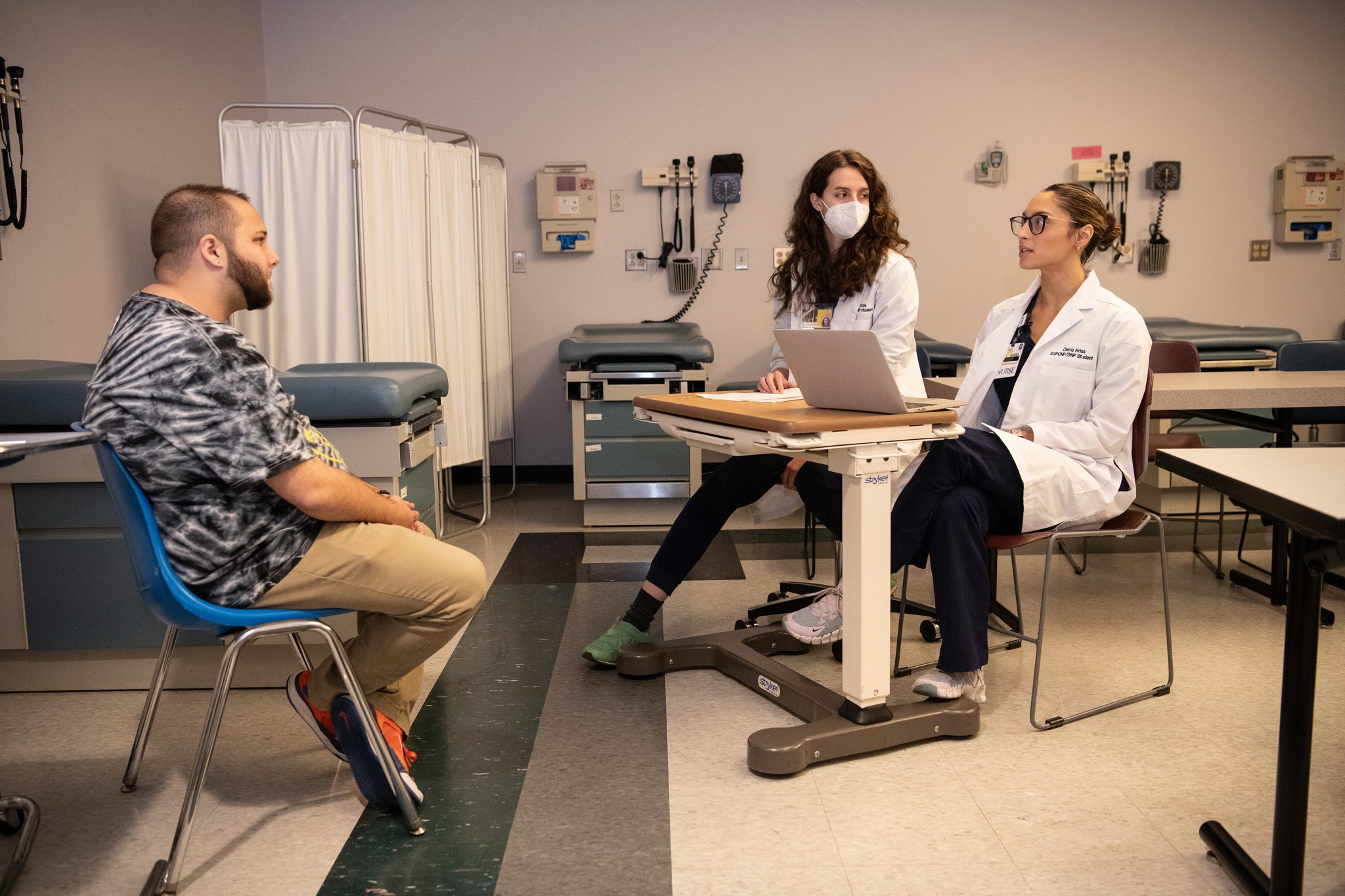Respectful Interactions: Standardized Patients Help Train Future Health Care Workers
March 06, 2024 Emily Bleiweis
The ability of students to practice patient interactions in a safe, controlled environment is the goal of the simulation experiences. Read about the program in the latest issue of “CATALYST” magazine.
Photo: Kade Randall (left), a standardized patient, works with University of Maryland School of Nursing Doctor of Nursing Practice students Angela Gale (center) and Cierra Arias to help them better understand how to provide gender-affirming care. Photo by Matthew D’Agostino
Kade Randall didn’t set out to spend his time training the next generation of medical professionals.
Randall, who works in the cannabis industry, has a background in employee development and experience providing work-related feedback.
And as a trans man, Randall knows firsthand what a bad interaction with medical professionals feels like.
After learning about the Standardized Patient (SP) program at the University of Maryland, Baltimore (UMB) — which uses trained “patients” in clinical instruction and assessment with students — Randall is using his unique experience as a trans man whose work experience focuses on teaching others intent versus impact to prepare students for future patient interactions.
“I’m trans in my everyday life. To be able to have these interactions with someone so that someone else doesn’t have to be made uncomfortable during a visit — that was my main motivating factor in working as a standardized patient,” Randall said.
Learning in a Safe Setting
During a formative simulation this fall, Randall worked with Doctor of Nursing Practice (DNP) students to help them better understand how to provide gender-affirming care in a small group setting.
Randall portrayed Kai, a nonbinary patient who was coming in for a pre-operation appointment for knee surgery.
“That simulation was more so specifically directed at using gender-affirming language and using inclusive language,” Randall said. “So it [gave] them an opportunity to get more associated with terms that may come up during consults with patients who are not generally cisgender-identifying.”
Cierra Arias, a second-year student in the adult-geriatric primary care DNP program, worked with Randall in the simulation. Arias, who hopes to become a palliative care provider with a focus on end-of-life care, said the goal of the simulation was for her to inquire about past medical, surgical, and family history; medications and allergies, all while making sure to be conscious of gender-affirming language.
“We received feedback that overall we made the patient feel very comfortable and trusting throughout our extensive interview. We were sure to be respectful and kind when asking invasive, vulnerable questions to our patient,” she said.
And for Arias, who said she hasn’t had as much interaction with those who are nonbinary or transgender, this type of simulation was particularly helpful.
“This felt like a safe place to receive true feedback and practice communication skills to ensure my patients will feel respected and comfortable with me as their provider, no matter how they identify,” she added.
That ability for students to practice patient interactions in a safe and controlled environment is a main goal of these simulation experiences.
Read more about the Standardized Patient program in the latest issue of CATALYST magazine.
You can read the Fall 2023 issue of CATALYST magazine, which highlights UMB's Center for Violence Prevention and its executive director; the University's three new deans; UMB's many innovations such as the School of Pharmacy training students to administer long-acting injectables; community initiatives such as the Community Engagement Center's workforce programs; UMB’s sustainability efforts to install a weather station; and much, much more!